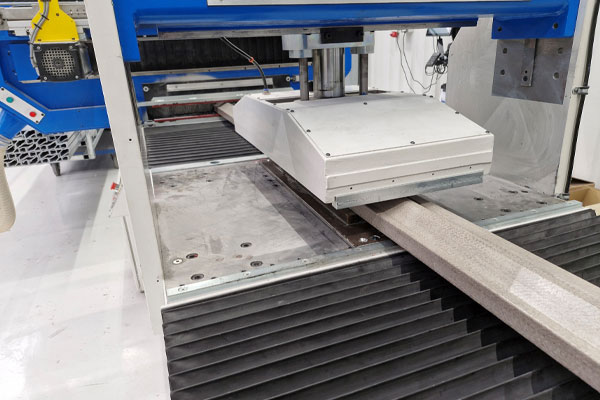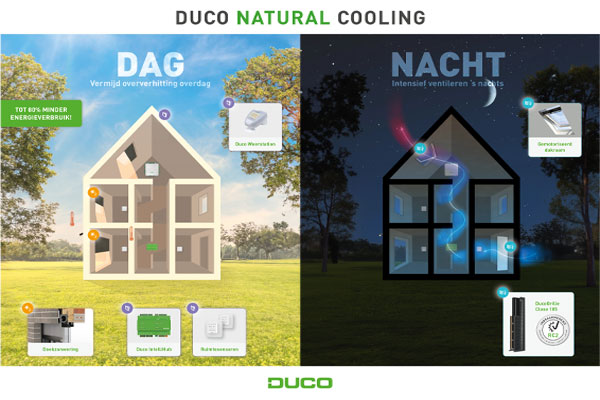Awards ceremony on Feb. 3
Nominated in the Environmental Impact category
On its way to a climate-neutral society, construction, as a large sector, has a big step to take in reducing direct and indirect CO2 emissions. With the 'Environmental Impact' category, the BouwBeurs Awards aims to encourage this transition by rewarding products and services that contribute to making the built environment more sustainable in the short term.
Fast forward to

Environmental impact
In this category, the jury could choose from very diverse solutions: from bio-based earplugs and energy-generating vacuum glass to circular construction fencing and ready-made hedges with native plant species that promote biodiversity. The jury found it inspiring to see how in each product and service in its own way steps have been taken that are necessary to realize that climate-neutral society.
Ultimately, the jury looked at innovative solutions that have the potential to make the greatest environmental impact. From that perspective, the jury nominated BUVA and Holonite's CO2-neutral sill, Duco Natural Cooling and Brink's Ibis for Environmental Impact for the Environmental Impact category.
In these solutions, sustainability is baked into the DNA, so to speak.
Category Environmental impact

CO2-neutral sill from BUVA and Holonite
The CO2-neutral sill from BUVA and Holonite combines natural fiber (flax) with a resin based on renewable resources. The biocomposite replaces traditional materials such as concrete and plastic, with a significantly lower carbon footprint. The manufacturing process is less energy intensive, while the Cradle-to-Cradle certified sill simultaneously stores CO2. Mechanically, the product meets all building regulations and can be used in existing building methods without any modifications. A first functional prototype will be presented at the BouwBeurs.
Jury verdict:
BUVA and Holonite, acquired by BUVA in 2021, are taking responsibility for their part in reducing CO2 emissions with the development of the carbon-neutral sill. The biocomposite sill is composed of flax and a resin composed of natural raw materials. Besides the fact that the sill consists of renewable raw materials, the production process of the biocomposite is less energy-intensive than conventional sills made of concrete or plastic. The jury is aware that a first functional prototype is presented at the BouwBeurs, whose environmental impact is promising.

Duco Natural Cooling by Duco
Duco Natural Cooling offers an energy-efficient solution against overheating by combining demand-controlled shading with cooling through ventilation. This replaces energy-intensive air conditioning. The integrated Duco IntelliHub automatically controls the components based on weather data, such as temperature and wind speed, measured by the Duco Weather Station. Simulations show up to 80% energy savings in homes with underfloor cooling, and in apartments connected to heat networks an annual CO₂ reduction of 325 kg per home.
Jury verdict:
Duco's solution to prevent overheating in buildings based on energy-extensive techniques such as shading and night cooling particularly appealed to the jury. Within the framework of the 'ladder for cooling', as presented in 2021 in the declaration of intent of OSKA (Overleg Standaarden Klimaatadaptatie), Duco combines demand-controlled shading with demand-controlled cooling through ventilation and makes it 'smart' by controlling it via the Duco IntelliHub that receives real-time data from the Duco Weather Station on the roof. This total approach yields obvious energy savings and has led the jury to nominate Duco Natural Cooling for the 'Environmental Impact' category.

Ibis for Environmental Impact from Brink Software
Ibis for Environmental Impact from Brink is a software tool with intuitive controls that seamlessly integrates environmental impact calculations with project budgets. Designed for construction professionals, the software provides real-time insight into carbon emissions, environmental cost indicators (EQI) and the financial impact of design decisions. The tool uses up-to-date data from the National Environmental Database and automates complex MPG calculations by automatically linking environmental maps to budget rows. Functionalities such as variant comparison and scenario analysis support informed choices.
Jury verdict:
A tool that makes sustainable design decisions simple - that, according to the jury, is the added value of Ibis for Environmental Impact. The linking of MPG calculations to project budgets makes both the financial and ecological consequences of design decisions transparent in real time - also for construction professionals who are not at home with the complexity of MPG calculations. Moreover, because Brink Ibis for Environmental Impact integrates with Ibis Calculating for Construction, the tool is widely available. This combination of features, and the fact that this is a tool pre-eminently aimed at making construction-wide 'environmental impact' calculations, makes the jury nominate this tool for this category.